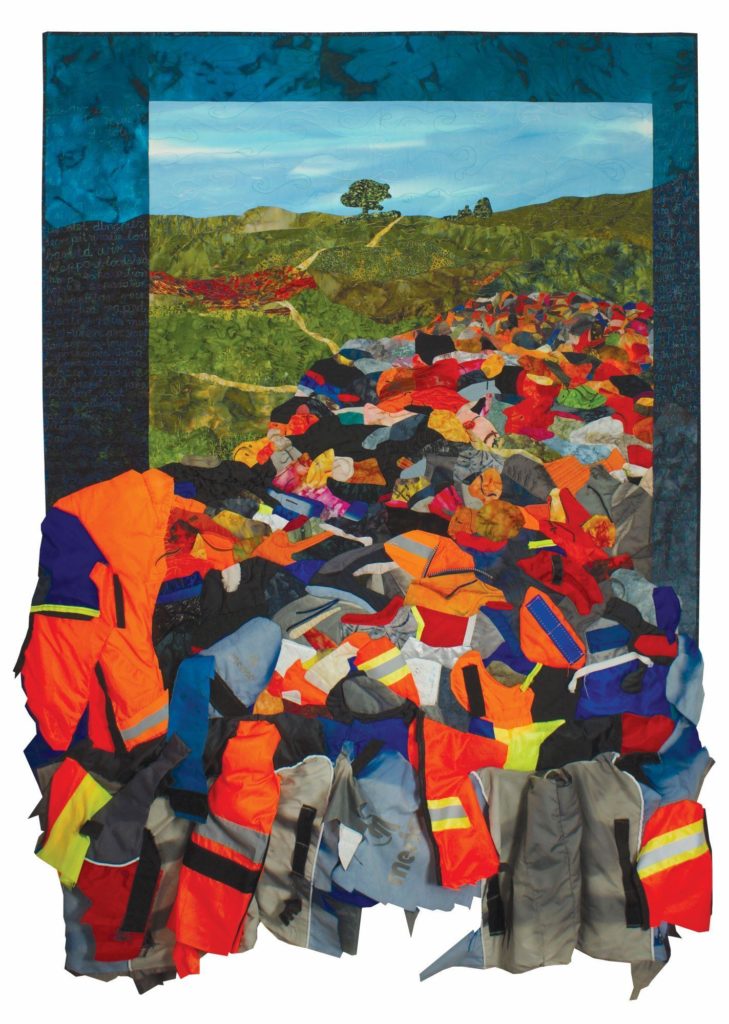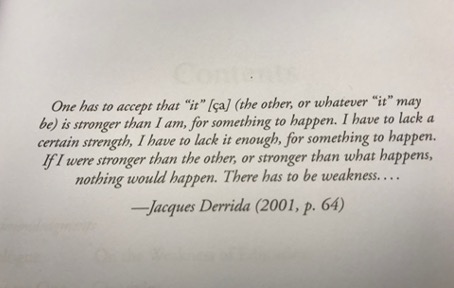
My apologies for this late post. I took a while to read and reseach.
I knew nothing about Lesvos prior to getting accepted to this program. I had not heard of refugees there, political violence on the island, etc. I just knew it was an island. When I told friends I’d be visiting, they seemed to know a bit about the refugee crisis and Turkish influence. I just listened.
I looked into public art to see if there were soundwalks or anything like that and found a painting of life jackets (some phony, just stuffed with sponges to give the illusion of safety) found washed ashore and in the nearby currents. I would have been more interested in a physical installation allowing viewers to look at and maybe even touch a collection of life jackets like this. Surely you can imagine the difference in feeling them with your hands than simply looking. Feeling the difference in quality and texture, and especially the size. I had such an idea from seeing a installation in Kosovo conveying experiences of women and girls violated by Serbs during the war.
I’m sure there’s a lot of other art and art forms I’ll experience once I get there. Prior to researching, all l I really pictured was small towns with olive trees because I could really only apply my experiences with the Balkans to this site. Now I’m interested in how their art is specifically localized to what represents Lesvos and what has happened there. Not knowing much about something can provide a wonderful opportunity to learn.
Hi Keyania, I really like your approach that ‘ignorance is an opportunity’. Not-knowing is what drives getting to know. Which reminds me of the beautiful quote from Derrida on weakness, at the opening of Gert Biesta’s The beautiful risk of education (2013). Here’s an image:
